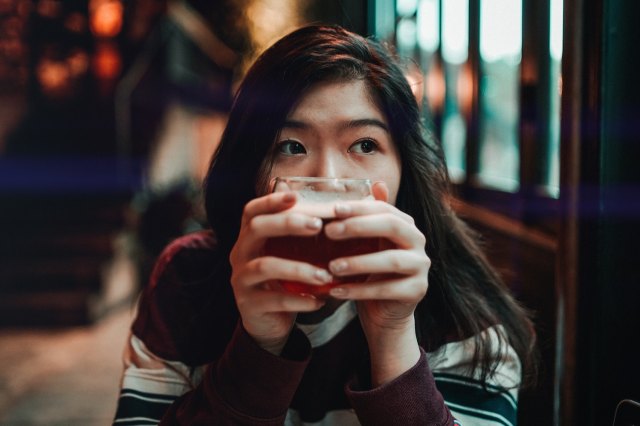Tito and I became best friends.
It was during a period I like to call “The Total Eclipse” because these happen only once every hundred years or so. I grew fond of the Austin, Texas-based vodka a year after my son was born. I was 36.
Clink, clink ice into the glass. Tito’s took the edge off after a long day of work.
Tito’s made the grit of the day smooth. It made me feel normal and jubilant. Soon—too soon—our relationship manifested into an unhealthy pairing. Turbulent verbal exchanges with my husband? Clink. Bad day at work? Clink. Feelings of inadequacy? Clink. Tito’s was not the best confidante or influence.
In retrospect, he fed me a bunch of crap and sorta ripped my life apart.
One morning, I looked up with one eye towards what I thought was the sun. My naked body ached, especially my back. It was throbbing as though I’d been lashed. Thrown-up scrambled eggs were splattered across the floor; my husband had made an attempt to sober me up with protein. I had spent Wednesday evening with Tito, passed out in the bathtub. I suppose I was drawing a bath, but the water and soap never happened. After being dragged to bed, I awoke dazed. Total darkness.
Why was I doing this? I am past my partying days. I didn’t crave alcohol. There was a deeper reason for my behavior. My mind was muddy. What I wanted was not clear.
A certain sadness had rolled in with the Equinox. I had nodes of happiness in between long bouts of hopelessness. Eclipses. Sometimes, episodes of sadness would extend over weeks, numerous fortnights.
I suffered in silence. I’d perfected the art of pretending to be happy. My smile, twinkling eyes and humor were ready and intact for any encounter. Of course, maintaining a facade of elation is extremely draining. Faker, I’d tell myself.
Since I was a stay-at-home mom, I fought off the melancholy with chores and arduous tasks, like refurbishing furniture. I would validate my work by trying to sell it on LETGO. No one bought my pieces. In fact, they still sit in the garage or are nestled between the furniture in my mother’s house. Still, they were a labor of love and a depiction of my mind at the time: used and messy.
When the evening settled into a still quiet, I hid my sadness from my son in soft sobs behind the shower curtain. I cried for the loss of my single-life, my miscarriages, my home in Austin, for the buried emotional trauma suffered as a child. If not crying secretly, I’d sleep. But to sleep meant I must wake, so I dreaded both.
When given the choice, I chose to sleep. In my dreams, fantastic phenomenons like kissing Ryan Gosling or traveling at light speed on a star occurred. Nebular. My life was a cycle of events encased in gray matter. It was colorless and without fervor. I simply was a revolving ball of cells moving through time.
I am matter, but would I or my life ever matter?
My son and husband often were my source of power and courage to continue through each day. Do my chores. Pick a new project. But my days would run together, and I would lose track of the date.
Saturday. Tuesday. Tuesday. Sunday… Someday.
I was alone and isolated in Midland with a new baby. My mind ran feverishly throughout these phases. Most of the time, as a deterrent, my mind was focused on creating new pieces, whether it be jewelry, furniture or art. I battled my dark bouts of depression with alcohol and mostly isolation.
Full of anxiety, I had a painful urge to meet the expectations of Earth, my family and friends. What was wrong with me? Why couldn’t I embrace the changes in my life and be happy? Was I allergic to happiness? Were happiness and I foes in a previous life? Yet, I chased happiness: day-to-day, phase-to-phase, moon to moon.
Then one day, “The Total Eclipse” ended.
I was diagnosed with Bipolar II disorder, which is characterized by long bouts of depression. Most notably, I have an uneven level of chemicals in my brain produced by the hypothalamus.
I struggled through “The Total Eclipse” of my ’30s, searching for answers. Although I personally embrace everyone’s idiosyncrasies—and even perhaps even their craziness—I’ve learned that asking for help when your craziness is caught in the shadows can save your life.
Now, I’ve found that just beyond the horizon, cresting—where the illumination is brightest—is my happiness. You can do anything…. Anything you can… Just head towards the light.











